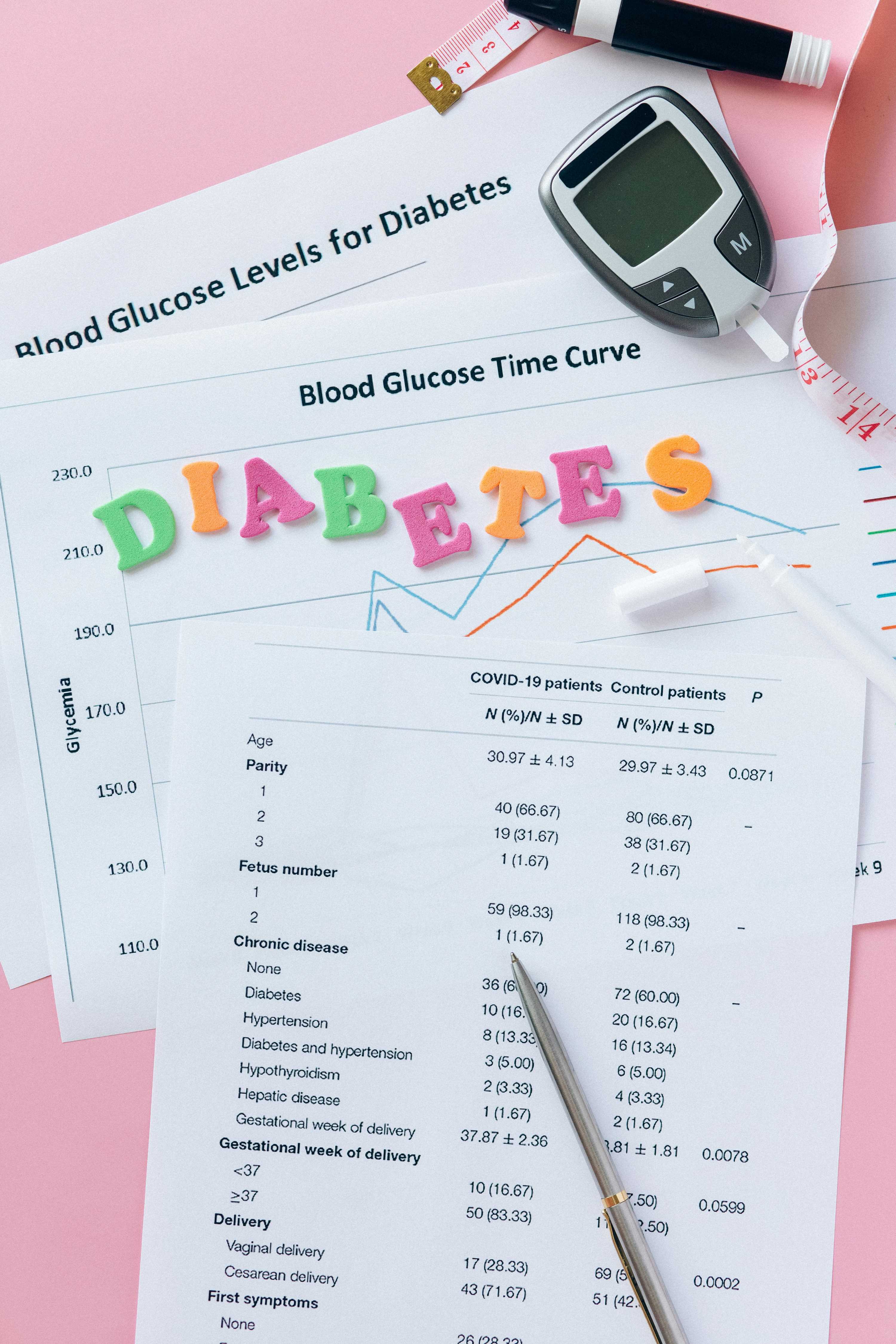
Are you struggling with type 2 diabetes and searching for an effective diet to manage your blood sugar levels? Furthermore, research has indicated that the ketogenic diet may also lead to reductions in medication needs for those with type 2 diabetes. Additionally, this eating plan has been shown to have positive effects on other health markers, such as cholesterol levels and blood pressure. Overall, the ketogenic diet offers a promising approach for managing type 2 diabetes and improving overall health.
Understanding Diabetes Type 2
Before diving into the benefits of a ketogenic diet for diabetes it’s essential to understand the basics of the condition. Diabetes type 2 is a chronic metabolic disorder characterized by elevated blood sugar levels due to insulin resistance or insufficient insulin production. This means that the body struggles to effectively use insulin, the hormone responsible for regulating blood sugar.
Uncontrolled diabetes type 2 can lead to various complications, including heart disease, kidney damage, nerve damage, and vision problems. Managing blood sugar levels is crucial for preventing these complications and maintaining overall health.
Benefits of a Ketogenic Diet for Type 2 Diabetes
Research has shown that a ketogenic diet can have numerous benefits for individuals with type 2 diabetes. By drastically reducing carbohydrate intake and increasing fat consumption, you can achieve better blood sugar control and improve insulin sensitivity. Here are some key benefits of a ketogenic diet for diabetes type two:
Stabilized Blood Sugar Levels:
When you limit your carbohydrate intake, your blood sugar levels become more stable. This can help prevent spikes and crashes, leading to better overall blood sugar control.
Weight Loss:
The ketogenic diet is known for its ability to promote weight loss. Shedding excess pounds can have a significant impact on blood sugar control and insulin sensitivity.
Improved Insulin Sensitivity:
Insulin resistance is a key feature of type 2 diabetes. Studies have shown that a ketogenic diet can enhance insulin sensitivity, allowing your body to utilize insulin more effectively.
Reduced Inflammation:
Chronic inflammation is often present in individuals with type 2 diabetes. The high-fat content of a ketogenic diet, particularly healthy fats like omega-3 fatty acids, can help reduce inflammation in the body.
Increased Energy Levels:
Many people report experiencing increased energy levels and improved mental clarity when following a ketogenic diet. This can be beneficial for individuals with type 2 diabetes who often struggle with fatigue.
Potential Medication Reduction:
With improved blood sugar control and insulin sensitivity, some individuals may be able to reduce their reliance on diabetes medications over time. However, it’s essential to work closely with your healthcare team when making any changes to your medication regimen.
Implementing The Ketogenic Diet for Type 2 Diabetes

If you’re ready to try the ketogenic diet to manage your type two diabetes, here are some practical tips to help you get started:
Consult with Your Healthcare Team:
Before making any significant dietary changes, it’s important to consult with your healthcare team, including your primary care physician and a registered dietitian. They can provide personalized guidance based on your specific needs and help you monitor your progress.
Gradually Reduce Carbohydrate Intake:
Instead of completely eliminating carbohydrates from your diet, start by gradually reducing your intake. This can help minimize potential side effects and make t
Focus on Healthy Fats:
While a ketogenic diet is high in fat, it’s essential to prioritize healthy fats. Opt for sources like avocados, nuts, seeds, olive oil, and fatty fish. Avoid unhealthy fats like trans fats and excessive saturated fats.
Monitor Your Blood Sugar:
Regularly monitor your blood sugar levels to assess how your body responds to the dietary changes. This will help you make adjustments and ensure that your blood sugar remains within a healthy range.
Stay Hydrated:
Adequate hydration is crucial for overall health and blood sugar control. Drink plenty of water throughout the day and limit sugary beverages.
By following these tips and working closely with your healthcare team, you can successfully implement a ketogenic diet for type two diabetes and reap its potential benefits.
Precautions and Considerations When Starting The Ketogenic Diet for Diabetes Type 2
While a ketogenic diet can be beneficial for individuals with type 2 diabetes, there are some precautions and considerations to keep in mind:
Potential Side Effects:
When transitioning to a ketogenic diet, you may experience some temporary side effects, commonly known as the “keto flu.” These can include fatigue, headache, dizziness, and digestive issues. These symptoms typically resolve within a few days or weeks as your body adjusts.
Nutrient Deficiencies:
Restricting carbohydrates can limit your intake of certain essential nutrients, such as fiber and some vitamins. It’s important to focus on nutrient-dense foods and consider supplements if necessary.
Individual Variations:
The response to a ketogenic diet can vary among individuals. Some people may experience significant improvements in blood sugar control, while others may not see the same results. It’s essential to listen to your body and work closely with your healthcare team to make adjustments as needed.
Sample Meal Plan for The Ketogenic Diet for Type 2 Diabetes
Here’s a sample meal plan to give you an idea of what a ketogenic diet for diabetes type 2 might look like:
The Ketogenic Diet for Diabetes Type 2 .Breakfast:
2 scrambled eggs cooked in olive oil with sautéed spinach and a side of avocado slices.
The Ketogenic Diet for Diabetes Type 2 .Lunch:
Grilled chicken breast with roasted broccoli and a mixed green salad dressed with olive oil and lemon juice.
The Ketogenic Diet for Diabetes Type 2 .Snack:
Handful of almonds or a small portion of Greek yogurt with berries.
The Ketogenic Diet for DiabetesType 2 .Dinner:
Baked salmon with steamed cauliflower and a side of zucchini noodles sautéed in olive oil
The Ketogenic Diet for DiabetesType 2 .Dessert:
Sugar-free Jello with whipped cream or a small portion of dark chocolate.
Remember to adjust portion sizes and macronutrient ratios based on your specific needs and consult with your healthcare team for personalized recommendations.
Tips for Success on The Ketogenic Diet for Type 2 Diabetes
Follow these tips to maximize your success on a ketogenic diet for diabetes type two:
Meal Planning:
Plan your meals and snacks in advance to ensure you have keto-friendly options readily available. This will help you stay on track and prevent impulsive food choices.
Track Your Macros:
Use a food tracking app or journal to monitor your macronutrient intake and ensure you’re staying within the desired range. This can help you maintain ketosis and optimize blood sugar control.
Experiment with Recipes:
Explore keto-friendly recipes and experiment with different flavors and ingredients. This will help keep your meals exciting and prevent boredom.
Stay Active:
Regular exercise can complement the benefits of a ketogenic diet for type two diabetes. Engage in activities you enjoy, such as walking, swimming, or strength training, to support overall health and blood sugar control.
Seek Support:
Join online communities or local support groups to connect with others following a ketogenic diet for diabetes type 2. Sharing experiences, tips, and challenges can provide valuable support and motivation.
Monitoring and Managing Diabetes Type 2 While on a Ketogenic Diet

While a ketogenic diet can offer significant benefits for managing diabetes type two, it’s crucial to continue monitoring and managing your condition. Here are some key aspects to consider:
Regular Blood Sugar Monitoring:
Monitor your blood sugar levels as recommended by your healthcare team. This will help you assess the effectiveness of the diet and make any necessary adjustments.
Medication Management:
Work closely with your healthcare team to monitor your diabetes medications and make any necessary adjustments. As your blood sugar control improves, your medication requirements may change.
Regular Check-ups:
Schedule regular check-ups with your primary care physician and registered dietitian to monitor your overall health and ensure that the ketogenic diet is still suitable for you.
Educate Yourself:
Stay informed about the latest research and developments in the field of diabetes management. Attend educational workshops, read reputable sources, and stay connected with your healthcare team.
By staying proactive and informed, you can effectively manage your type 2 diabetes while following a ketogenic diet.
The Ketogenic Diet for Diabetes Type 2.Conclusion
The ketogenic diet offers a promising approach to managing type 2 diabetes. By reducing carbohydrate intake and increasing healthy fats, you can stabilize your blood sugar levels, improve insulin sensitivity, and potentially reduce your reliance on diabetes medications. However, it’s crucial to work closely with your healthcare team to ensure that a ketogenic diet is suitable for you and to monitor your progress. With dedication and support, the ketogenic diet may be your ticket to better health and improved blood sugar control. Take the first step today and embark on a new dietary journey towards thriving with type 2 diabetes.